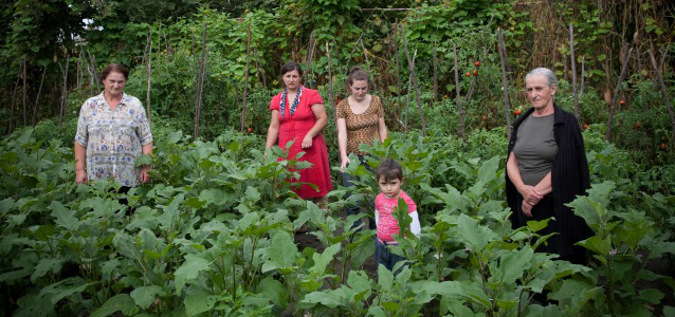UN Women report: Gender inequality remains a pervasive problem in rural Georgia
Social and cultural barriers, lack of child care services and the burden of unpaid housework prevent women from developing their skills and from generating an income, according to a recent UN Women gender assessment of agriculture and local development systems in rural Georgia.Date:

Rural households that are headed by women in Georgia suffer more from poverty than those headed by men because of pervasive gender inequality that dominate life in the rural parts of the country. Despite clear gender inequalities, policies and strategies at the agricultural, regional and village level lack the necessary approaches to tackle these issues. These are just some of the findings of a new study, the ‘Gender Assessment of Agriculture and Local Development Systems’, commissioned jointly by UN Women, the Swiss Cooperation Office for the South Caucasus (SCO) and the Regional Office for the South Caucasus of the Austrian Development Agency (ADA).
In Georgia, official data shows that the proportion of land operated by female farmers is 20%, compared to 80% operated by men (GeoStat, 2013) and women’s economic participation rate stands at 57% compared to 77% for men (GeoStat, 2015). The study aims to analyze agricultural and regional development policies, programmes and services from a gender perspective and looks at the extent to which rural populations, especially women, benefit from these standards in six of the country’s eleven regions.
Financial constraints and women’s double work burden
The results of the study are grave: 90% of those surveyed reported experiencing financial difficulties, and 54% of households, where the main breadwinner is a woman, reported that they are hardly able to buy food; compared with 39% of those households headed by men. Women, however, work more hours than men in all regions except Shida Kartli. When work both inside and outside of the household are combined, focus group data indicates that women work between 2.5 hours (in Samegrelo) and 8 hours (in Kakheti) more than men, every day. There is a gendered division of labor in agricultural value chains, where in most regions, women are concentrated in the animal husbandry value chain and men in the value chain for crops. However, when the two are combined, women engage in agricultural activities 80 days more per year than men, on average. Despite this, the prevailing stereotypes prescribe that women should stay at home and look after children; and their work is not being recognized.
Read more on UN Women’s website for Georgia.